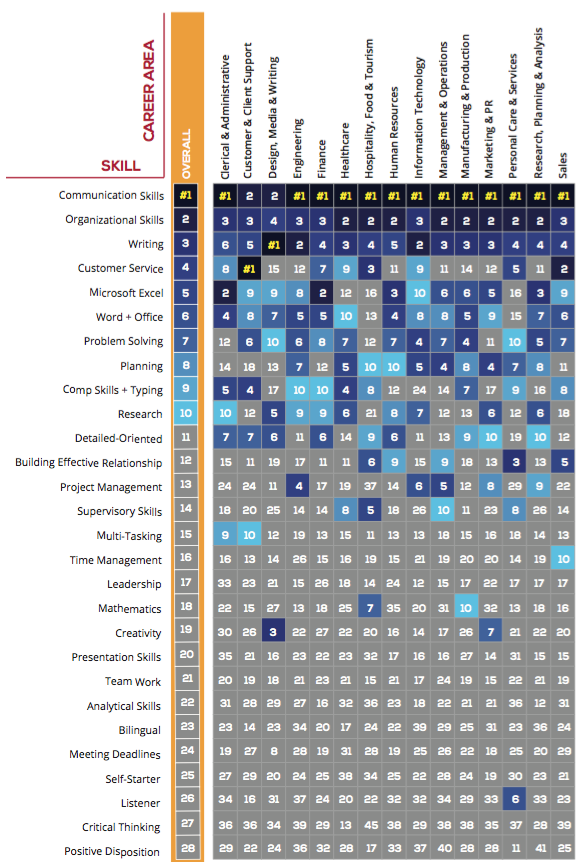
When you think of the world of finance, you likely think about money, math, and a whole lot of numbers. You might think this is the domain of number-crunching introverts who stare all day at charts and computer screens, who live and die by every tick of the stock market. But that is incorrect. Financial management is as much about communication and customer service as it is about numbers. Interpersonal and business communication skills are integral to the job. In fact, success in finance depends on these skills as much as any other career path. Mr. Kyle Travis is a testament to this fact. He is vice president of investments at Stifel Financial Corp. in Grand Rapids, Michigan. At only 32 years old, he is among the youngest people to hold this position at Stifel, and he has found a good deal of success in the job. Mr. Travis was kind enough to sit down for an interview regarding the importance of communication skills in his job, and what advice he can give young professionals. Given that Mr. Travis rose through the ranks to his current position due to his expertise and communication skills, budding professionals can learn a great deal from his wisdom and experience.

What is your professional history (include your timeline and roles)?
“I began working in financial services in May of 2008 – I began as an intern and learned much during a tumultuous time in the market. I passed my exams and obtained my license in the summer of 2009. I worked with several different teams as a junior associate. This role helped me learn the back office/administration functions, as well as the client-facing side of the business. In 2011, I took the opportunity to branch out on my own, becoming a Financial Advisor. While building my own business, I also partnered with a retiring advisor, purchasing his business after his retirement in 2012. Since that time, I have operated as an advisor for my own clientele with just my administrative assistant.”
What writing advice do you have for professional communicators?
”Be truthful and know your audience.”
What is your one pet peeve when it comes to professional writing?
“Outside of spelling errors, I would say what annoys me the most is a tone of pretentiousness. Instead of writing down toward your audience in an attempt to make them feel inferior to you – I prefer to write in terms that all can understand. I also hate 3rd party content; that is, hiring out your writing to a third party that knows nothing about your business. It comes off as lazy and disingenuous. If you know your audience, you should be able to do the writing yourself – your clients deserve that type of direct communication line.”
What kind of business reports do you read and/or compose regularly?
“I read a lot, all day long: Current news, company earnings reports and research articles and opinions. I compose account reviews and reports very regularly and write a letter to all my clientele on a monthly/quarterly basis.”
What are your writing suggestions to make those types of reports successful?
“Again – I really stress the importance of writing ‘to’ your audience, not above them. I also think keeping content concise is important…because it has a much higher chance of being read and understood if it’s concise.”
“Sometimes the truth hurts, but its important to be honest and truthful… and sometimes that means that you can’t be all things to all people.”
What speaking advice do you have for professional communicators?
“Again, I think being truthful is paramount. Confidence is also important – and this is a hard trait to learn, I believe it takes experience. The more you become an ‘expert’ about something, the more comfortable you become in talking about it. As I have aged, I also have found the importance of not always saying ‘yes’, or whatever it is that your audience wants to hear. Sometimes the truth hurts, but its important to be honest and truthful… and sometimes that means that you can’t be all things to all people.”
Name one thing you wish you had known about business communication prior to your professional career.
“My job can at times turn much more into psychologist than I ever anticipated. I often feel like I need to wear 3 hats in communicating by business: a salesman hat, an advisor hat and a phycologist’s hat. Coming into my career, I only envisioned the Advisor hat – the other two it took me a long time to accept and work to become better at.”
After assessing the Burning Glass list of Baseline Skills (2016), which skills not in the top 5 would you move into the top 5…and why?
“I would move Problem Solving into the top 5. In most cases, a business exists to help fill a void, or address a problem that doesn’t currently exist in the marketplace. Being able to problem solve, and help your customer find a solution is critical to your success. Be that drawing up a financial plan, or finding the correct widget to complete their project. Being an effective problem solver requires so many other underlying skills. It encompasses many of the skills on the top baseline skills list: communication, creativity, customer service, planning, etc.”

“Young professionals today struggle with human contact. Our world has become so tech-driven.”
What team skills do you feel young professionals need the most?
“I’m not sure it only pertains to a ‘team’, but I find that young professionals today struggle with human contact. Our world has become so tech-driven. It’s far easier to send a text or email to someone… and in many cases, this works just fine. But having the skills to sit down, face-to-face and effectively communicate with your customer, partners, or others is a skill that I notice being neglected in some of today’s young professionals.”
Key Takeaways
Mr. Travis’ words offer many good points and plenty of good advice that young professionals can learn from, and this extends well beyond the world of financial services. He stressed the cruciality of honesty, integrity, and modesty in communication. Professionals need to be confident about their respective expertise, but need to avoid condescending language. Communication in business, just as in any relationship, should be a level playing field, where all participants are honest and have a healthy mutual respect for one another.
Professionals new to corporate America will also find they tend to have many more responsibilities in their jobs than what the job description states. The ability to solve the wide variety of problems that arise will be integral to any job, and communication will be a critical piece of achieving this. Being able to work as a team and communicate with one another is key to solving the problems you will encounter. As the world becomes more and more digital, the personal touch of face-to-face interaction is a skill that will help you stand out.
In Mr. Travis’ career, he achieved quick upward mobility at Stifel Financial, thanks in no small part to his excellent communication abilities. His extroversion and confidence interacting with people, be they clients or colleagues, plays an important role in his achievements. It was a simple thank you letter that helped him first land an internship with Stifel. Then of course, his personal communication skills helped him land a full-time position with the company. It also helps him land clients, big and small, time and again, and hold onto those clients. Communication is the foundation of healthy relationships, both personal and professional, and those relationships are a critical building block for a successful career in any field.
Marshall Gruber is from Grand Rapids, Michigan. He began his career in sales and he seeks a degree in Accounting and Management at the University of Southern Indiana. He plans to start a construction business after graduation.

